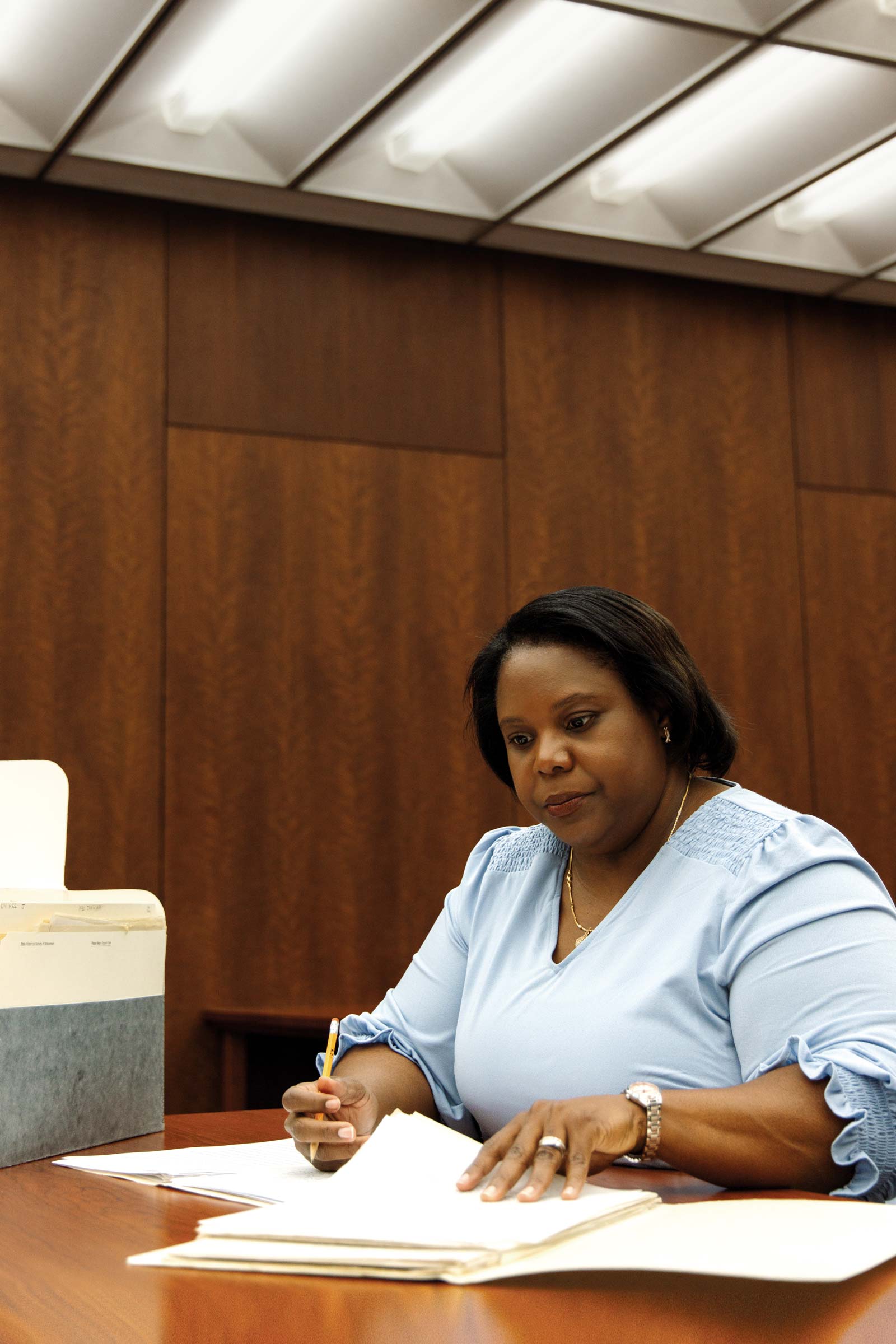
As a historian, Christy Clark-Pujara likes to rely on concrete examples. And the one she chooses from her latest book project, Black on the Midwestern Frontier: From Slavery to Suffrage in the Wisconsin Territory, 1725–1868, is an eyebrow-raiser. She went hunting for information about Toby, Tom, Lear, Jim and Joe, the five enslaved people who accompanied Wisconsin’s first territorial governor Henry Dodge when he migrated to the area in 1827. She headed to the Wisconsin Room at UW–Platteville, which houses Dodge’s historical papers.
“You can find his business records, his personal records and the year he became a politician, but when we’re talking about the five enslaved people that accompanied him … it’s not there,” says Clark-Pujara, who is the chair and a professor in the Department of African American Studies. “The stories of African Americans in Wisconsin are buried in the records of the powerful.”
Clark-Pujara has made it her mission to slowly and painstakingly uncover them and, in doing so, reveal the ways that Black people sought freedom and liberty in a place where there were relatively few of them.
Wisconsin became a territory as part of the Northwest Ordinance of 1787. The ordinance forbade slavery, but the practice continued through what Clark-Pujara has come to call “community consent.” While slavery in the Midwest was sparse and irregular, the ways in which white men in Wisconsin configured early laws to exclude Black settlers from voting and incorporating towns are often shocking. Clark-Pujara always makes a point of sharing the state’s 1848 Constitution with her students. The first clause of the article on suffrage declares that you must be a white citizen to vote but also allowed foreign-born white men who declared an intention to become a citizen. In other words, the requirement for voting was wrapped up in whiteness, not citizenship.
It’s history for all of us. It’s the history of this state. It’s the history of this nation.
“The debate was over if Black people could become citizens and be considered worthy settlers and Americans,” Clark-Pujara says. “African Americans are asserting that they are, and many white settlers are asserting that they are not.”
Sometimes, Clark-Pujara finds Black settlers’ voices directly in documents. In 1845, Benjamin A. Hughes and 12 other African American residents in Racine County petitioned the Wisconsin territorial legislature, challenging the racist statute that barred them from participating in the electoral process despite being free men. She also conducts research about Ezekiel Gillespie, a former enslaved person who filed suit to finally extend Black men the right to vote in Wisconsin in 1866.
“I think it’s really important to understand that the history of Africans and African Americans in this country and in the state of Wisconsin is not history for Black people,” Clark-Pujara says. “It’s history for all of us. It’s the history of this state. It’s the history of this nation.”




